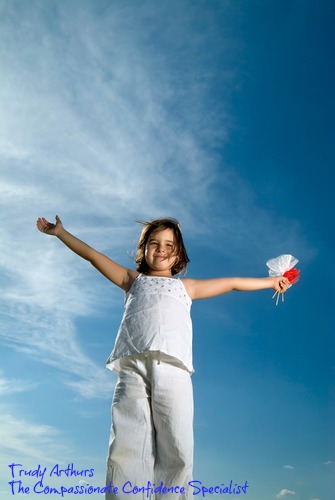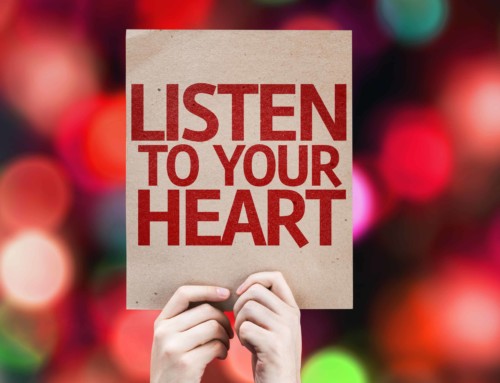How much do you trust yourself? It’s a serious question. Take a moment, and ask yourself the question. How is your self-trust? Really examine all the areas of your life. And allow yourself to be honest in your response.
How much do you trust yourself to keep commitments to others – and even more importantly, to yourself?
We hear a lot about trust these days, meaning the trust we have in others. Why am I focusing on ‘self-trust’? Over the past two months, this aspect has come up with at least seven clients with whom I was working to help them develop compassionate confidence and resilience.
If you’ve lived any kind of life, you’ll have realised that everyone in your life has the capacity to break your trust. They may leave. They may die or make an unwelcome comment. They may lie or cheat. They may disappoint in a myriad of ways.
However it does help you realise the vital importance of being able to trust the one person you know you can count on – yourself.
To have a life you love, whatever it is you love about it, you first need to trust yourself. I know in my past I have looked outside myself for support when it would have been much more effective to learn to trust myself and live from that space.
Nobody else can be as supportive of you as you can learn to be. How can a strong degree of self-trust impact you?
- Self-trust means that you can take care of your needs. You take steps to survive situations, practice self-care and kindness – not perfection.
- Self-trust means you refuse to give up on yourself. You make decisions for your life based on your awareness of your thoughts and feelings, and expressing them.
- You create your personal standards and stand by them.
- You know when to care for yourself first.
- You know you can survive ‘mistakes’ get up and try again.
- And you can be fully yourself without hurting or limiting others.
You’re not alone
And you know, if you don’t already do these things on a consistent basis, you’re not alone. Very few of us were taught to trust as children. You may have been guided with messages of dependence or you may have had parents and mentors who modelled trust and gave you positive messages that helped you develop self-trust. Whatever your background, self-trust is a skill you can learn.
Here are three easy routes to enhanced self-trust:
- Avoid those who weaken your self-trust
You probably didn’t have a choice over having negative people in your life as a child. But you do have a choice today. Think about the people in your life. Do they support or undermine you? Do you truly want them in your life?
- Keep your commitments to You
Growing your self-trust means becoming your own best friend. This includes keeping promises to yourself. For example, you might promise yourself to give yourself more ‘me’ time’ for walking or reading, something that you really want to do. If you’ve made this kind of promise to yourself and not kept it, you’ve undermined your self-trust. So next time you promise yourself something of this kind, keep your promise. Give yourself permission to be on your priority list.
- Speak kindly to yourself
Yea, I know this may feel a bit ‘cheesy’. Everyone has some awful voices in their heads with messages such as ‘you’re not good enough’. Luckily, this is a habit you can easily adjust. Next time you make a mistake, rather than bashing yourself with ‘you’re so stupid’, pause for a count of three, take a deep breath and instead say ‘No worries, it was just a minor error’ or ‘sure, that was a biggie, but I’ll learn from it, and love myself anyway’ .
Self-trust is not about perfection. It simply means that you trust yourself to overcome stuff and handle the outcome.
What do you think? Here’s my invitation:
^ Take a few minutes to reread this; then choose one of the three tips to begin to focus on.
^ Having chosen one area to focus on, commit to taking one small step to change every day. Just one small step. Do this for 30 days. Then choose another area of focus.
^ Make a note of what you observe – if it was difficult; if it was easy; what changes you observe; what differences you are seeing and feeling.
I’d really love to receive your feedback. Write to me Trudy@trudyarthurs.com. I’m here to help.
For information on special programmes starting next month to help you develop your self-trust, email me: trudy@trudyarthurs.com. Please join me on Facebook: Trudy Arthurs, the Confidence Specialist.
Tel: 07810 511 600 – call to arrange your free 30-min Develop your Self-Trust Session.
With blessings ‘til next time. T x
Who am I? I’m known as The Compassionate Confidence Specialist. An accredited professional executive and transformational coach and workshop facilitator, I’ve travelled the journey from alcohol addiction and a diagnosis of terminal cancer. These experiences, combined with my professional trainings and extensive research into compassion, mindfulness and resilience, allow me to help you learn how to trust your self, listen to your HeartVoice, see through your Heart’s Eyes and live the life you’re here to live with Heartful Self-Confidence. To find out if I can be of any support in your personal exploration quest, simply contact me to arrange your no-strings-attached Get Acquainted Session.
© Dancing Leopards Ltd 2017





Love the writing and truism of expression and ease of understanding in the format.
Love Adelinexxx